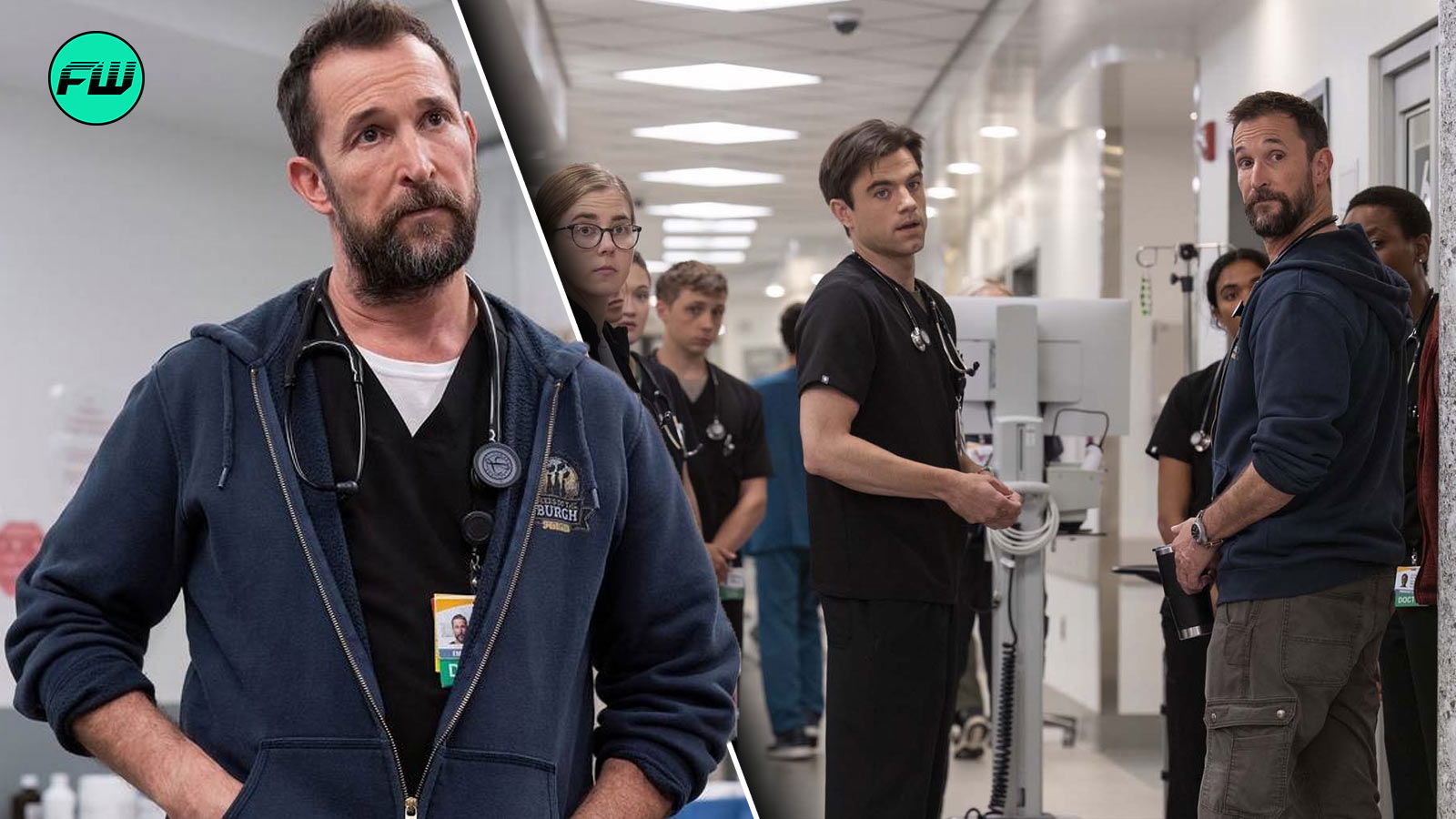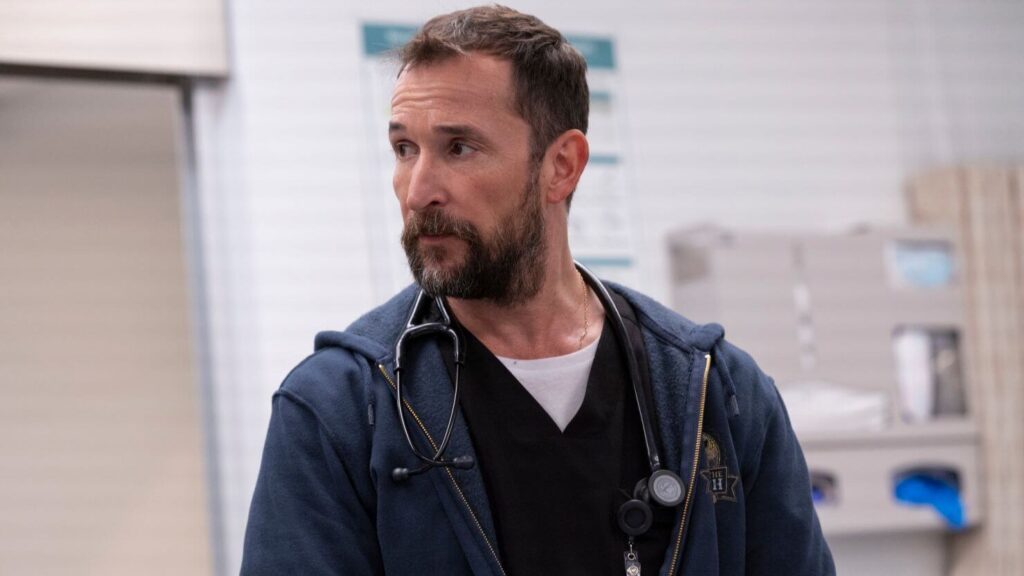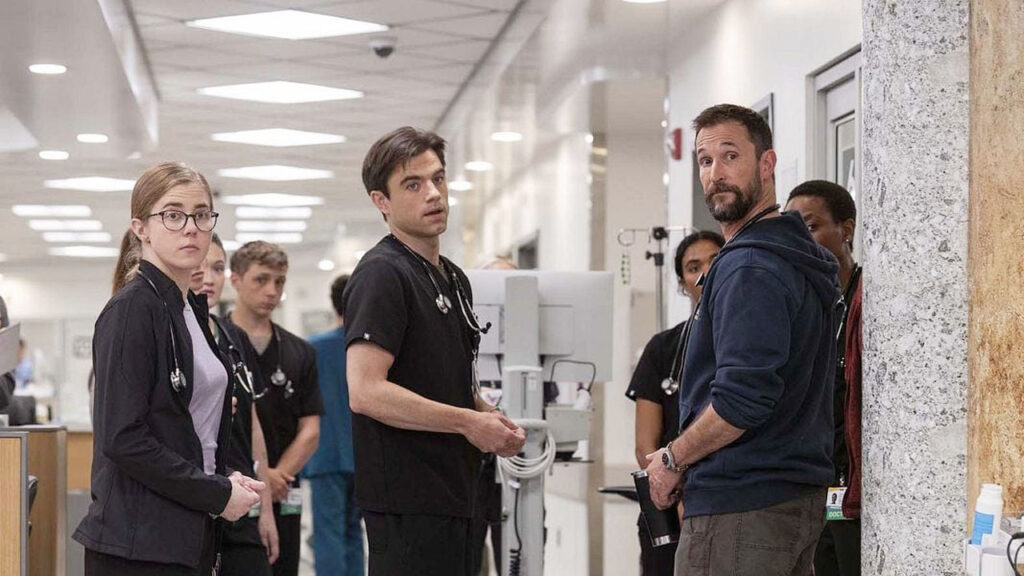
Noah Wyle on Returning to the ER: “I didn’t realize how much I really needed that” — The Pitt Exposes the Cracks in American Healthcare, One Hour at a Time

Noah Wyle is back where audiences love him most — in the middle of the chaos, heartache, and moral urgency of a hospital ward. Best known for his iconic role as Dr. John Carter on ER, Wyle returns to medical television in The Pitt, a new series that doesn’t just dramatize emergency medicine — it dissects the American healthcare system with a scalpel.

Premiering in January 2025, The Pitt follows Dr. Michael “Robby” Robinavitch, the senior attending at Pittsburgh Trauma Medical Center, across an unrelenting 15-hour shift. Wyle not only stars but also serves as executive producer, helping to shape a show that blends the pulse-pounding tension of a trauma unit with a scathing portrait of systemic dysfunction.

While The Pitt has earned immediate acclaim for its realism, what sets it apart is its mission: it’s not just about medicine, but about truth. Each episode is a chronicle of burnout, bureaucracy, racism, and violence — wrapped around stories of human compassion and professional duty. From staffing shortages to hospital funding failures, the show has resonated deeply with viewers — especially frontline workers who see their own lives reflected in its gritty, hour-by-hour storytelling.
In a recent interview on PBS News Hour, Wyle opened up about what drew him to the project — and why The Pitt was something he needed.
“I get a lot of my sense of balance from going to work every day and being creative and working with creative people and telling stories,” Wyle said. “And I didn’t realize how much I really needed that until I didn’t have an opportunity to do it.”
During the pandemic, Wyle — like many of us — felt the weight of inaction. He received countless letters from nurses, EMTs, and doctors who had been inspired by ER to pursue medicine, thanking him for giving them the first spark of their calling. But the pandemic also laid bare how broken the healthcare system had become, and Wyle wanted to respond — not just with nostalgia, but with something urgent, relevant, and unflinching.
“I thought maybe there’s another story to tell here,” he said, “something more contemporary that reflects what these guys are going through now.”
That story became The Pitt, a series designed to shine light into the darkest corners of modern medicine — a world where hospitals are run like businesses, mass shootings overwhelm ERs, and racial disparities in care remain pervasive.
Dr. Robby, Wyle’s character, is no idealized hero. He’s scarred — still coping with the death of a mentor during the pandemic, burdened by unaddressed PTSD, and navigating a collapsing system while trying to keep his humanity intact. Wyle’s performance captures a quiet desperation beneath the professional resolve, mirroring the very real psychological toll healthcare work has taken in recent years.
Each episode of The Pitt covers a single hour of Robby’s 15-hour shift, creating an almost real-time window into the sheer volume and intensity of life inside an urban ER. The format keeps tension high while exploring everything from undocumented patients and insurance denials to violence against staff and racial biases in pain management.
And yet, The Pitt is not bleak. It’s filled with moments of quiet dignity and humor, and its ensemble cast brings depth to the nurses, interns, paramedics, and surgeons who prop up the system despite being chronically overworked and underpaid.
The show has struck a nerve — not only with audiences but with the medical community. Nurses and doctors have praised its accuracy and empathy, noting that it goes beyond dramatization to spark essential conversations.
One such moment reportedly hit close to home: Wyle’s own mother, a nurse, compared The Pitt to ER after an especially harrowing scene — and declared that one of them finally got it right.
With season 2 already greenlit for January 2026, The Pitt seems poised to continue its dual mission: delivering compelling drama while advocating for a better healthcare system. For Wyle, it’s more than a comeback. It’s a calling.
“This show is about more than medicine,” he said. “It’s about survival. It’s about the people who show up every single day to do the impossible — and why the system keeps asking them to do more with less.”